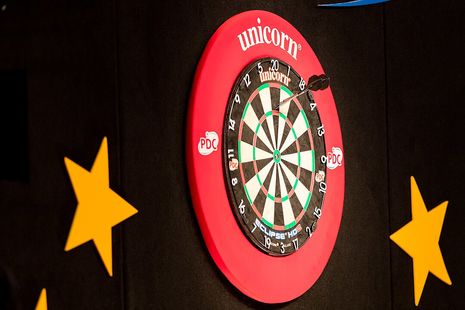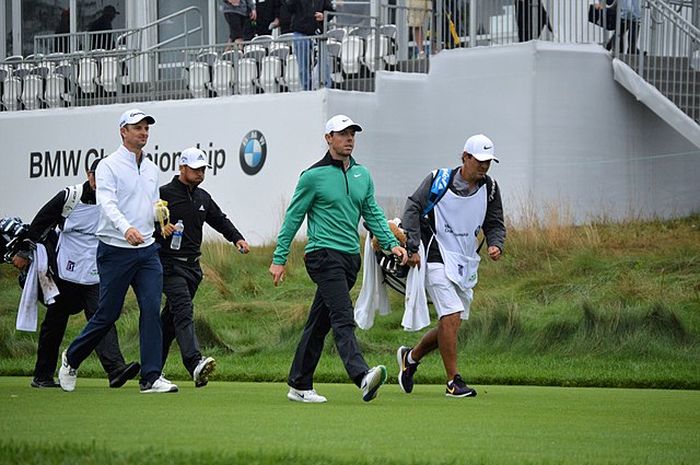The new pride of the PDC: Luke Littler has already done so much for darts but how far can he go?
Rory Gavin considers the phenomenon of Luke Littler within the world of darts

The worlds of darts and celebrity rarely intersect. Aside from diehard fans like Stephen Fry and Tim Vine, it has often been isolated in its working class image and away from the headline grabbing attention which mainstream sports receive. The phenomenon that is Luke Littler, however, has shattered much of the snobbery around darts. The 16-year-old’s dream run caught the imagination of the British public, with celebrities such as Susanna Reid, Jeremy Clarkson, and Fearne Cotton all publicly talking about the World Darts Championship Final this January.
Over 4.8 million people viewed the Professional Darts Corporation (PDC)’s showpiece match, the most watched non-football sports event ever on Sky. For a tournament that could scarcely fill the cosy Circus Tavern in 1993, this has been a meteoric rise. Darts has made strides into new frontiers, helping different types of players rise to the sport’s elite and, alongside them, new demographics and a new found respectability. The Bullseye-fuelled image of a profoundly British sport, with drunken middle-aged blokes hurling three arrows from an oche, has never been further from the truth.
From 2007, the PDC made strides into central Europe with the addition of big-name Dutch star Raymond Van Barneveld. The sport has also invested in the US and Oceania through its World Series tour and has seen stars from both continents drive crowds and viewers up. Darts has equally diversified into a well-funded women’s tour. This step was taken after the success of the (now defunct) BDO Ladies World Championship. Fallon Sherrock caused a similar media splash to Littler back in 2019 and her victories over Ted Evetts and World No 14 at the time, Mensur Suljovic, shattered much of the masculine exclusivity surrounding darts.
Littler’s success is just another step in moving beyond this stereotype, with the prodigy energising a youth interest in the sport and a surge in tickets sales for events later this year. His victories over major winners Van Barneveld, Rob Cross, and Andrew Gilding have earned him a Premier League place and will see him front and centre of PDC marketing for the foreseeable future. Yet, while his success may have bolstered the acceleration of darts’ interests, will this run accelerate him to the top of the sport?
Arm-chair pundits have suggested Littler could now become a multi-world champion by the time of his 21st birthday, certain bookmakers are taking odds on whether he could beat Phil Taylor’s 16-time champion status by just 2045. It is rarely this easy. Michael Van Gerwen has been the sports dominant figure over the last decade but has only managed three world titles in that span. A knock-on effect of darts’ surging popularity and global reach is that quality arrowsmiths are popping up all over the place, with unexpected major winners from Portugal, Australia and Belgium testament to that. Littler will face a hyper-competitive landscape that could well get even more hostile as the years progress.
The assumption Littler will retain his level is also a brave one. Although darts looks robotic, only the tiniest flaws need to develop in a player’s technique to put them back years. Early legend Eric Bristow saw his career curtailed by ‘dartitis’, a condition in which players are so desperate to succeed they get too anxious to release their dart. Twice world champions Adrian Lewis and Glen Durrant have also chosen to take breaks from the sport, decisions rooted in loss of confidence and the relentless nature of the modern PDC tour. Players can be expected to play almost 80% of the year. It will be a complicated task for Littler to keep himself in technical and mental check over this schedule.
Warrington’s new star does have an eye-watering amount of talent at his disposal, though. There is little doubt he should go on to be a big name. These predictions of darting immortality, however, are perhaps a little premature and, with the harsh spotlight of the media on him, Littler will face scrutiny unlike other top players.
It is much more likely that Littler will face a career path not dissimilar to the journey that darts itself has been on. Piecemeal growth and achievement could be the most sustainable way to dominate the sport in the long-term. Littler’s moment in the sun will not be brief, and neither will his importance. Darts’ humble beginnings have never seemed further away yet, since Luke ‘the Nuke’ has exploded onto the scene, its future has never seemed so bright.
 News / SU reluctantly registers controversial women’s soc18 December 2025
News / SU reluctantly registers controversial women’s soc18 December 2025 Features / Should I stay or should I go? Cambridge students and alumni reflect on how their memories stay with them15 December 2025
Features / Should I stay or should I go? Cambridge students and alumni reflect on how their memories stay with them15 December 2025 News / Dons warn PM about Vet School closure16 December 2025
News / Dons warn PM about Vet School closure16 December 2025 News / Cambridge study finds students learn better with notes than AI13 December 2025
News / Cambridge study finds students learn better with notes than AI13 December 2025 News / CUP announces funding scheme for under-represented academics19 December 2025
News / CUP announces funding scheme for under-represented academics19 December 2025









